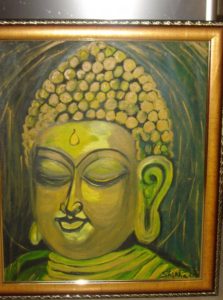Sacred Scriptures
I have great respect for Hinduism and also for Medical profession! I try to correlate these two major domains, one the religious faith and other the faith in humanity respectively. I back trace the evidences from the past. It takes me back to ancient and Hindu Sacred Scriptures of Vedas, Upanishads, Bhagavat(d) Gita and Mahabharata, where I find the mentions of medical, surgical and herbal, features and cures available during that period, thousands of years ago.
It is fascinating to note the evidences and mentions of medical sciences back then in ancient Hindu scriptures. I researched deeper to find the hidden facts and initial footprints of medical and surgical sciences in ancient Vedic India. I may not be able to furnish all here, though will try to highlight some, for my readers.
Sacred Scriptures
Hindu scriptures are books and texts that include sacred Granthas (Books) as follows:
- Vedas — Rigveda, Samaveda, Atharvaveda, Yajurveda
2. Upanishads with verses and hymns are over two hundred Hindu scriptures. 108 is the traditional number. Two concepts of importance in Upnishads are Brahman, the ultimate reality and Aatman, the individual self, the soul. Among those ten of them are principle ones: Isha, Kena, Katha, Prashan, Mundaka, Mandukya, Tattiriya, Aitareya, Chaandogya, Brihadaranyaka.
3. Bhagavat(d) Gita — Great Hindu Epic is a 700 verse Hindu Scripture that is part of Epic Mahabharata. It is a set of eternal message of spiritual wisdom in the form of verses. It is narrative of dialogues between Pandava prince Arjuna and his spiritual guide and then Charioteer Krishna during fight against his cousins Kauravas during Mahabharata for duty, action and renunciation.
4. Mahabharata — Great Epic with numerous stories and scenarios and knowledge to resolve mental and physical issues.
This knowledge is used till date to find solutions to life problems and preached to next generation for good. Humanity Prevails!
Light of this knowledge never extinguishes. It keeps on shedding light forever. This implies that knowledge by means of propagation continues to flourish.
SamaVeda
These Holy books describe Hinduism and Hindu Mythological stories in great details in the form of hymns and describe mythological accounts, poems, prayers and formulas which are sacred in Vedic system.
One of the sacred texts of the Hindu dharma, the Vedas, the Atharvaveda, is the “knowledge storehouse of “Atharvanas” which means, formulas and spells, to prevent and cure diseases and calamities.
A late addition to the Vedic scripture, Atharvaveda, owes its roots to Sanskrit. Commonly and most widely used explanation of the scripture is ‘the book of Magic formulas’. Samhitas in the Atharvaveda have written accounts of Surgical and Medical speculations, it includes Mantras and Verses for treating a variety of ailments.
Great epics Bhagavat(d) Gita and Mahabharata tells about how to lead an ideal Hindu lifestyle, rules and regulations, duties a Hindu should follow as a king, as a father, as a husband, brother, and son, and /or as a Queen, Mother, wife, sister, daughter and so on.
The Vedas are further divided into four series/sections as Rigveda, Samaveda, Atharvaveda, Yajurveda.
These holy Hindu books are written in Sanskrit and is referred to as the Vedas which are important ancient scriptures. The scriptures of the Vedas are meant to guide Hindu believers in their daily lives.
Other holy scriptures in Hinduism are the Upanishads, the Smrutis, the Puranas, the Ramayana and the Mahabharata.
Sacred Trinity Gods
Hindus believe and follow in general that the Vedas provide a blueprint to the ritual model used by God to create the worlds and beings.
Vedas were necessary to continue and preserve the order and regularity of the worlds, in the beginning of first creation by Hindu Trinity Gods.
Therefore, the Creator God Brahma himself published the blueprint to other 330 million Gods and rest of Humans for the welfare of the Worlds.
- Brahma is main first member of the Hindu Trinity and is “the Creator”, because he periodically creates everything in the universe.
- Vishnu is the second member of the Hindu Trinity. He maintains the peace, order and harmony of the universe, which is periodically created by Brahma and periodically destroyed by Shiva to prepare for the next creation. Vishnu is worshipped in his several Avatars (incarnations) Rama and Krishna are two of them.
- Shiva is the third member of the Hindu Trinity; role is to destroy the universe in timely manner in order to prepare for its renewal at the end of each cycle of time.

Share Your Thoughts